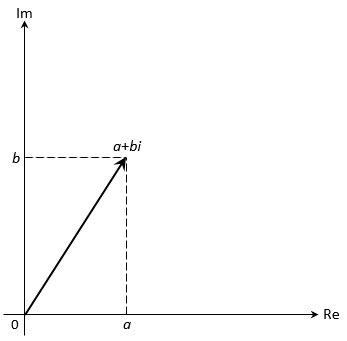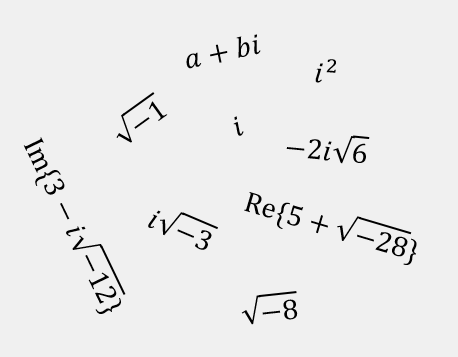In my previous post we talked about i^i and we evaluated it. We found that the result is a real number, although you would expect it to be complex since i is an imaginary number. Is this the case for the i-th root of i? First of all, let’s write this as a power: Now, this is can also be written as We already know what i^i equals therefore, This means it’s simply the inverse of i^i, and so it’s a real number as well! If you use a calculator… Read more i-th root of i →
Ever wondered what the imaginary unit i raised to itself is equal to? Is it going to be a complex number? Or a real one? Let’s find out! Let’s first define i: Therefore, There is an identity in maths which is in my opinion one of the most beautiful equations that exist, and that is Euler’s identity: This means At this point we have two expressions: We can use the second one to replace the -1 in the first: We no longer have the i because i times i equals… Read more i to the i-th power →
Here are the solutions to the exercises I gave you here! Notice that cosine is an even function, therefore cos(-pi)=cos(pi). The logarithm in base 3 of 3 is 1 because 1 is the number you must raise 3 to in order to get 3. Now, why is theta raised to the log in base theta of negative i equal to negative i, i.e. the argument of the logarithm? That’s a property: Another property is the following: Hope this was useful! If you have any doubt leave a comment and I… Read more Imaginary numbers | Solutions with procedure →
Here I talked about complex numbers and introduced the Re and Im functions. In this post you can find exercises you can practice with to apply what you’ve learnt. You may find these links useful: https://atomic-temporary-167386734.wpcomstaging.com/what-are-imaginary-numbers/ https://addjustabitofpi.wordpress.com/whats-integration/ https://addjustabitofpi.wordpress.com/rules-and-properties-of-integrals/
In a previous post (https://atomic-temporary-167386734.wpcomstaging.com/what-are-imaginary-numbers/) we saw what imaginary numbers are and the basic operations with them. Here you can practice and in another post you will be able to check your answers and see the procedure. I would love to see your answers in the comments!

As you may know, you can’t add or subtract two different variables to get one. For example, 4a + 3a = 7a but 4a + 3b is still equal to… Read more What are complex numbers? →

We’ve always been told we can’t take the square root of a negative number, since the square of a negative number is a positive number. But remember, in maths nothing… Read more What are imaginary numbers? →


